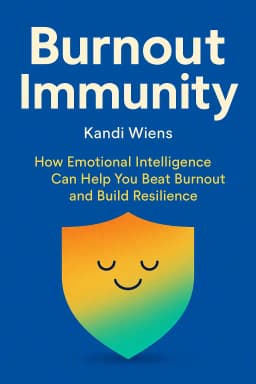
The Performer's Armor: Forging Burnout Immunity in a High-Stakes World
Golden Hook & Introduction
SECTION
Ish: That's a staggering statistic, Celeste. It’s also a little terrifying. To think we could be so disconnected from our own reality, especially when our job is to connect with others.
Ish: I like that, 'architecture.' It suggests it's something we can analyze and rebuild.
Deep Dive into Core Topic 1: The Hidden Architecture of Burnout
SECTION
Ish: Okay, I'm ready. What are they?
Ish: That framework is incredibly useful. It takes it from a vague feeling of 'I'm overwhelmed' to a specific diagnosis. I can already see how in past roles, a 'Community' or 'Fairness' mismatch was the real issue, not just the long hours.
Ish: I know that guy. Every industry has one.
Ish: Wow. That hits hard. In the performance world, the 'Reward' mismatch is a classic trap. The reward is often applause, that external validation. You can be getting standing ovations every single night but feel completely empty and disconnected from your 'why,' from your own values. You're getting the reward, but it's not the one your soul actually needs.
Ish: And in digital marketing, the 'Fairness' and 'Control' mismatches are constant. You might see a project with a huge budget and tons of support get all the praise, while your scrappy, innovative campaign gets overlooked. Or you have zero control over a client's last-minute, weekend-destroying demands. It's not just tiring; the book is right, it's demoralizing. It feels unjust.
Deep Dive into Core Topic 2: The Mindset Alchemy
SECTION
Ish: And a challenge response is different?
Ish: This feels a lot like stage presence. Before a show, you have all this nervous energy. A threat response would be stage fright—you freeze up. A challenge response is when you channel that energy into a focused, charismatic performance. You're using the adrenaline instead of letting it use you. Is that a fair comparison?
Ish: Sounds like a nightmare.
Ish: Ah, changing the frame immediately. Smart.
Ish: He wasn't trying to control them; he was modeling the behavior he wanted to see.
Ish: That's brilliant. As a host on a cruise ship, you're constantly managing the energy of a room. You can't control if someone in the audience is having a bad day or is determined to be grumpy. But you can control your own energy, your own focus, and how you engage with the people who are responsive and open. Colin's strategy is a leadership version of that. It's about focusing your energy where it can actually have an impact.
Ish: It's a paradox, isn't it? By focusing on serving others, you end up protecting yourself from burnout. It shifts the focus from your own stress to their growth.
Synthesis & Takeaways
SECTION
Ish: Right, it’s about diagnosing the 'what'—what is actually causing this stress? Is it workload, is it fairness, is it a values conflict?
Ish: Diagnose the 'what,' then choose the 'how.' I love that. It's both analytical and empowering.
Ish: It's so easy to let those things slide when you're busy. You think, 'I don't have time for that.' But the book is saying you don't have time not to.
Ish: That's a powerful question. For me... one true thing is the feeling of finding a new chord progression on the piano. It's a moment of pure creation that has nothing to do with analytics or audience approval. It's just... mine. And thinking about that already makes me feel a little more grounded.
Ish: This was fantastic, Celeste. Thank you.









